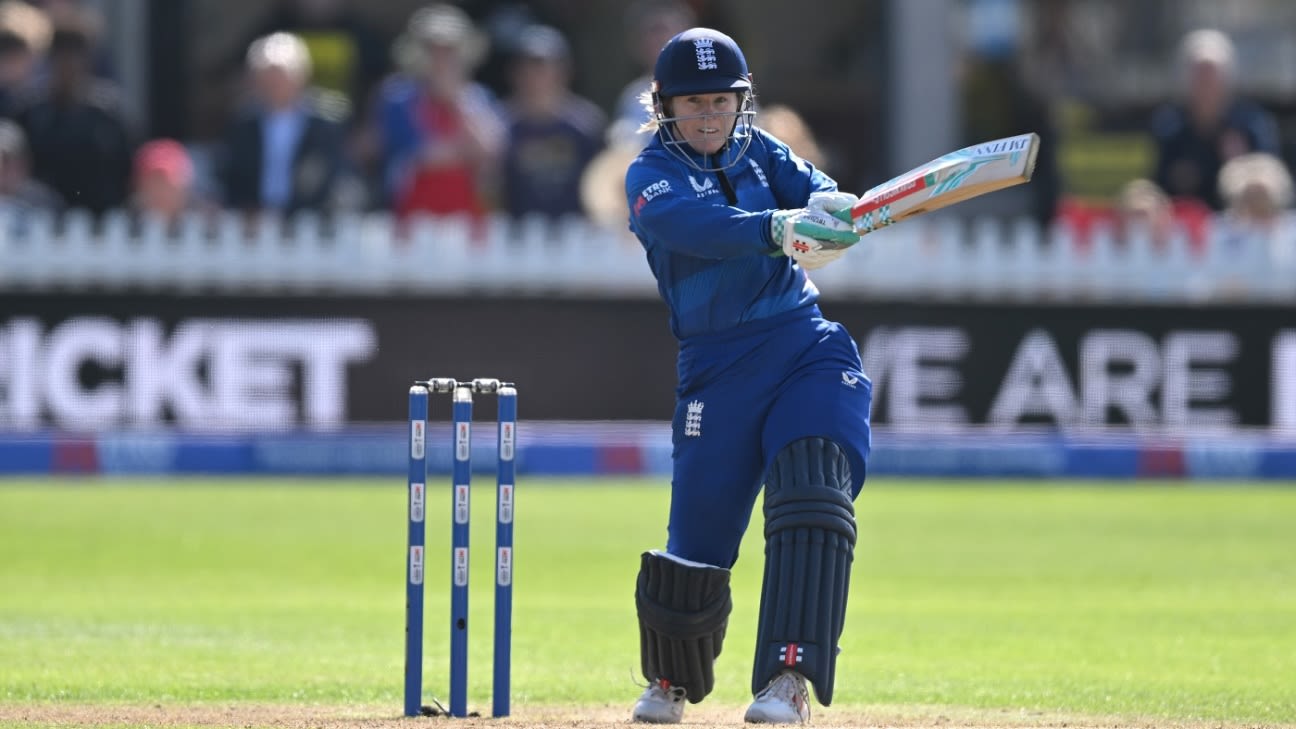Beaumont: 'We have to protect 50-over cricket at all costs'
Written by I Dig Sports
Speaking to ESPNcricinfo on the eve of England's three-match T20I series and four-day Test against India in Mumbai - and just a fortnight after the men's 50-over World Cup ended, igniting debate over whether the format was on the brink of extinction - Beaumont said it was crucial for the women's game to nurture all three versions of the international game.
"The more the game goes on, I think the more it'll diversify and there's more talent in every country, so now you can almost field very different teams depending on the format," Beaumont told the Ladies Who Switch podcast on Tuesday. "I just hope that other formats outside of T20 aren't left behind because that's a real issue that has happened in the men's game.
"One of the few good things about the women's game, being quite a long way behind the men's game still, is that we can learn from the mistakes of the men's game. The WPL and all the franchise leagues, and the investment, and the amount of money that has come into the women's game are absolutely amazing and some might say overdue, but also I think we need to protect where the game's come from.
"We see the men's game talking about 50-over cricket: 'is it even worth doing?' Well, if only four nations are playing Test cricket in women's cricket, then we have to protect 50-over cricket at all costs.
"I think everyone would love to have loads of Test-playing nations and play big Test series but, at the moment, that's not a reality. At the same time, if you're just a Test match player and you play two Tests a year, you're not playing much cricket. Hopefully we can keep and protect all formats of cricket and not just jump on the wave of T20 and leave everything else behind."
Beaumont hasn't played a T20I in nearly two years, having lost her place following the 2022 Women's Ashes in Australia as then-head coach Lisa Keightley plumped for a more youthful squad, ahead of England's failed home Commonwealth Games campaign later that year.
But her desire to promote the 50-over format feels less motivated by her personal circumstances than from her broader perspective as a broadcaster, having branched into that field while still playing. She regularly commentates on England Women's internationals she is not involved in, as well as Hundred games, and has covered some England Men's fixtures too.
"If we're going to say teams want to play Test matches, we want to push it in the women's game, but realistically at the moment the money-maker is T20, and T20 franchise cricket in particular. You can't go from T20 cricket to Test match cricket, it's so different," she added. "The only thing that is a bridge between the two is 50-over cricket.
"England, Australia, India can afford to put on Test matches, that maybe people aren't coming to yet, and invest in the marketing and put an event on for four or five days. Other cricket boards can't afford that. A 50-over game they can do, they can invest in it and see the game grow and then, when they might be ready to take on Test cricket, players know how to potentially build an innings.
"Not an innings over six hours, over two days or whatever, but a longer innings, whereas T20 is only going to go one way, where you've got to go at a strike-rate of 150-plus from the off. There's definitely room for all three, and the Hundred in my opinion but we've got to work with all three formats at the moment across the globe and protect all of them."
"I've said to the girls, if I do say something on air that you don't agree with, just come and talk to me because I would never want that to jeopardise anything at all."
Tammy Beaumont
Beaumont admits, however, that Women's internationals have posed the toughest challenge of her commentating career, not least during England's 2-1 T20I home series defeat to Sri Lanka, after they had beaten Australia in both white-ball legs of the drawn Ashes. Then, the inevitable noise swirled around whether she should be back in the T20I side.
"It's probably the most difficult thing, but I think it's about having quite clear principles in what I want to be as a commentator," she said. "Sharing a dressing-room with the players, my key principle is if I wouldn't go and say it to their face, I don't say it on air because at the end of the day their parents are watching, their family's watching at home, friends. Anything you do say, if it's overly critical or overly harsh and you wouldn't say it to their face, they're going to find out.
"I've said to the girls, if I do say something on air that you don't agree with, just come and talk to me because I would never want that to jeopardise anything at all. But at the same time, I am outside the T20 squad. It only takes an absolute gun opening batter to come along and I'd probably be out of the ODI side squad as well at some point. So I've got to think about the future."
Not that she doesn't harbour ambitions to return to the shortest format at international level, where she is stranded on 99 T20I caps.
"That's up to the selectors," she said. "They've got a good idea of what their World Cup team might look like and you've just got to keep putting your hand up and churn out runs and put in match-winning performances.
"At the same time, you can't control everything. There's so many good T20 players in England now, particularly opening the batting. Everyone's putting their hand up to try and have a go in the powerplay. If I got an opportunity it would be amazing but at the same time, just keep going."
Valkerie Baynes is a general editor, women's cricket, at ESPNcricinfo















 Phone: (800) 737. 6040
Phone: (800) 737. 6040 Fax: (800) 825 5558
Fax: (800) 825 5558 Website:
Website:  Email:
Email: 






